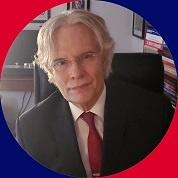 José Martí Was Never a Communist (Excerpt)
José Martí Was Never a Communist (Excerpt)
Marxism weighs more on positive liberty and positive law. As such, the communist project, with its dependence on structural repression to achieve its ends, could be welcomed by Lenin, Mao, or Castro, but not by Martí or Lincoln.
(Excerpt from my speech at the Academy of Cuban History in Exile, AHCE)[e]
For sixty-four years after being killed in battle, the rightly deserved reverence for Cuba’s national hero, José Martí, was a matter of hallowed institutional respect among Cubans. During the republican era (1902–1958), no political party, movement, or public figure attempted to ideologically delineate the Cuban Apostle’s politics to fit partisan or worldview contentions. There was a consensus on what Martí believed in and what he rejected. A free and independent Cuba where its people could live in dignity, in a self-governing open society and prosper, both, spiritually and materially, was the accepted understanding of Martí’s paradigm. A tyrannical regime was his antithesis.
The communist takeover of the island, using state and dictatorial power, initiated an aggressive campaign to deconstruct Martí. The vast written testimony that Cuba’s premier figure laid out, unequivocally places Martí outside the prism of a Marxist or socialist thinker and activist.[1] Castro-Communism, nonetheless, has been barefacedly relentless in its pursuit to create a false characterization of the top-notch Cuban patriot and intellectual to accommodate its political objectives, social domestication endeavors, and entrench its systemic program. The task of familiarizing Cubans who have been raised in Marxist-Leninist captivity and subjected to the ideologically altered version of Martí with the real one should not be construed as a draconian undertaking. A person needs only to reference the ample empirical written testimony to conclude that the Apostle of Cuba’s independence was, undoubtedly, not only not a communist, but, in fact, a convinced anticommunist. Letting Martí speak for himself provides clarity for those in earnest doubt.
Marxism is encapsulated in a binary-driven conflict theory scheme. It is atheistically materialist, determinist, and follows a naturalist philosophical framework. The Marxist belief system presupposes an antagonistically occurring relationship between two perceived opposites that are dialectically at war with each other because of the existing order. According to Marxist theory and praxis, the remedy can only be a comprehensive systemic demolition. The adjunct of Leninism to the ideological model promoted by Karl Marx and Friedrich Engels, further distanced communism from Martí’s political, moral, and ethical position. The license that Vladimir Lenin and the first successful communist state (USSR) gave to the repressive use of state power in assisting the development of dialectical materialism, gravely estranged Martí from the possibility of associating the Cuban hero with the dogma articulated by Cuban communism since 1959.
Marx and Engel’s divorce from Georg Wilhelm Friedrich Hegel’s dialectical philosophical model was attributable to, precisely, materialism. Drawing heavily from Ludwig Feuerbach’s radical atheism, the communist duo turned the Hegelian doctrine on its head. This places Cuba’s foremost liberator at total odds with Marxism’s epistemological and metaphysical base. The primacy of the spiritual and eternal resonates constantly in the Cuban national leader’s thinking and expressions. The limits of a materialist understanding of the universe did not permeate the over three million words found in his voluminous, complete written works.
Martí subscribed to the transcendentalist creed, which he espoused, as did Plato and great Christian theorists such as St. Augustine and St. Thomas Aquinas (among others), in a higher supernatural order. In other words, he gave credence to the primacy of the invisible, a structured disposition where everything emanates from a Creator, and natural law. The issue of religiosity with him must be weighed in the same context as that of Abraham Lincoln, arguably the American figure most admired by Martí. Lincoln may not have been a regular churchgoer, but he guided the United States in its civil war to preserve the Union and end slavery with a firm conviction in God’s providence and the view that freedom is a natural right. Martí’s centrality of liberty as an absence of restraint and oppression was underscored as a preeminent notion, not a conventional phenomenon. Marxism weighs more on positive liberty and positive law. As such, the communist project, with its dependence on structural repression to achieve its ends, could be welcomed by Lenin, Mao, or Castro, but not by Martí or Lincoln.
©The Cuban American Voice. Originally published in @elnuevoconservador.com
 🖋️Author Julio M. Shiling
🖋️Author Julio M. Shiling
Julio M. Shiling is a political scientist, writer, columnist, lecturer, media commentator, and director of Patria de Martí and The CubanAmerican Voice. He holds a master’s degree in Political Science from Florida International University (FIU) in Miami, Florida. He is a member of The American Political Science Association, The PEN Club (Cuban Writers in Exile Chapter) and the Academy of Cuban History in Exile.
Follow Julio on:
📚Published books 📺In the media 👨🏫 Conferences and Symposiums 🎙️Podcast The Shiling Summary
[e] This essay will appear in full in issue 9 of the "Anuario Histórico CubanoAmericano", 2025, published by the Academia de la Historia de Cuba en el Exilio (Academy of Cuban History in Exile, AHCE).
[1] Communism and Socialism are used interchangeably. This follows a pattern established and practiced by Karl Marx. Marxism, as a term coined by Friedrich Engels, will also be included in the same conceptual reference.

